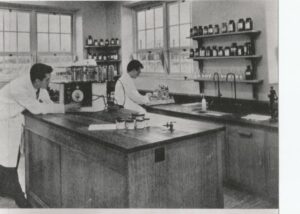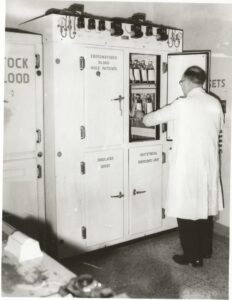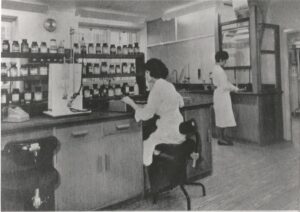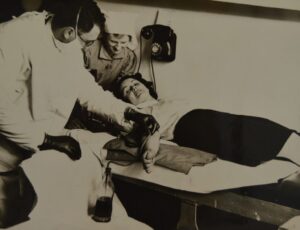 Our doctors and scientists working in pathology are experts in illness and disease.
Our doctors and scientists working in pathology are experts in illness and disease.
Their job is to study samples from a person’s body to understand what’s making them unwell. For example:
- If your blood doesn’t clot properly – it’s a haematologist who will conduct the blood tests, confirm if you have haemophilia, and offer treatment
- When there’s an outbreak of infection in a hospital – for example MRSA, it’s a medical microbiologist or infection doctor who will advise the infection control teams and work hard to contain it
- For those having trouble getting pregnant – it’s a reproductive scientist who will investigate, diagnose and, where possible, treat any infertility issues
At the end of National Pathology Week, we’re looking back in pictures at how the science of saving lives has developed at Blackpool over the years.
Most recently of all, Blackpool Teaching Hospitals opened a new histology laboratory in summer 2022.
Histopathology is the study of cells in tissue and is involved in the diagnosis of various diseases and conditions; the department also carries out diagnostic testing for cancer.
The shiny new lab is a far cry from the mahogany work benches and school chemistry lab-style fume cupboards of yesteryear.
- Histology lab in 1960s
- Opening of new pathology department in 1961
- Biolchemistry lab in 1960s
Pathologists’ role in blood sciences includes transfusion medicine where the cause of a bleed might not be so obvious as blood loss from an accident.
Blood from donors can be life-saving as these archive pictures of a public appeal and collection show:




